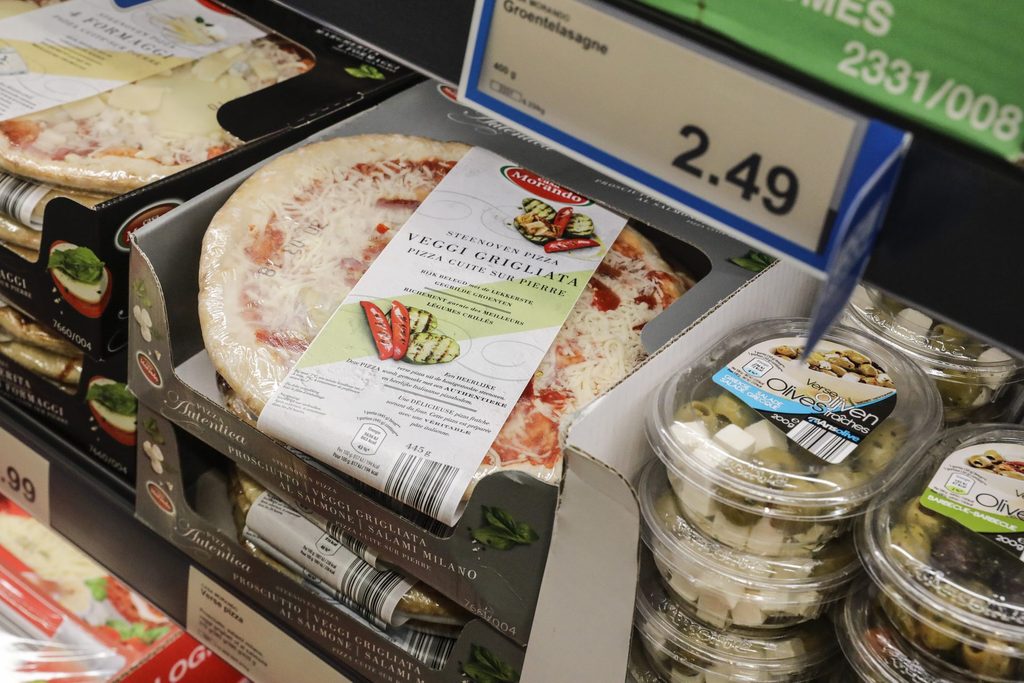In today's bustling supermarket aisles, the term "fresh" is often thrown around, adorning labels of various food products. But does the use of this word align with what consumers consider "fresh", or does it mislead shoppers into believing they're purchasing something different?
Consumers have voiced their concerns about products labeled as "fresh" in stores, questioning whether these designations accurately reflect the items. Suspicions have been raised over produce such as the "artisanal, fresh quiche" sold at Aldi which has a shelf life of 14 days or the containers of "fresh" olives displayed with an expiration date two months away.
When consumers think of "fresh," they typically imagine products without preservatives, items straight out of the oven or freshly picked fruits and vegetables. But can any food product be labeled as "fresh", or should manufacturers and retailers adhere to specific guidelines?
Image and reality
Defining "fresh" reveals a disconnect between legal definitions and consumer perceptions. In European legislation, rules governing the "fresh" label primarily apply to the agricultural sector, requiring products not to have undergone processing. A spokesperson for the FPS Economy, told VRT News that freshness varies by product type. For instance, potatoes can be considered fresh up to eight days after harvest, while fish has a shorter freshness window. Products must also maintain a healthy, sound, and sellable quality to qualify as "fresh".
The term "fresh" remains a subject of debate, with limited legal restrictions even permitting the use of preservatives in products labeled as such. However, there are strict boundaries. "Fresh" cannot be applied to products that have been thawed, diluted from a concentrate, or reconstructed from a powder, according to the FPS source.
Aldi, a prominent supermarket chain, justifies its use of "fresh" labels on certain products. According to an Aldi spokesperson, the distinction lies in storage requirements. Fresh olives should be refrigerated, while those in jars are specially sterilized for longer shelf life. Regarding their apple cakes, the spokesperson told VRT that the time between production and store shelves is merely one to two days, emphasising that "fresh" doesn't necessarily mean "straight out of the oven".
Related News
- Spreading the sweetness: Belgian fruits exporters look to Vietnam as emerging market
- Meal packages, pastries and baby food: Belgian purchasing habits impacted by inflation
Importantly, the FPS Economy spokesperson confirms that Aldi's practice of labeling industrially baked cakes and preserved olives as "fresh" complies with regulations. The reasoning behind this lies in the use of fresh ingredients and fewer preservatives, resulting in a shorter shelf life for these products.
The central question remains: Does the use of "fresh" labels mislead consumers? The law is explicit that food information should not induce purchases that consumers would not make if they knew the actual circumstances. In cases of complaints or investigations, the government or a court examines each case individually.
When it comes to terms like "artisanal" and "artisan", the law offers limited guidance. Producers can use these terms, provided they don't mislead consumers. The FPS Economy has issued recommendations for producers to follow, emphasising substantial ingredient quality, the absence of additives, and a manual or traditional production process.
In conclusion, the use of "fresh" and similar labels on supermarket products remains a contentious issue, prompting consumers and authorities to scrutinize product claims to ensure they align with consumer expectations and legal regulations.

